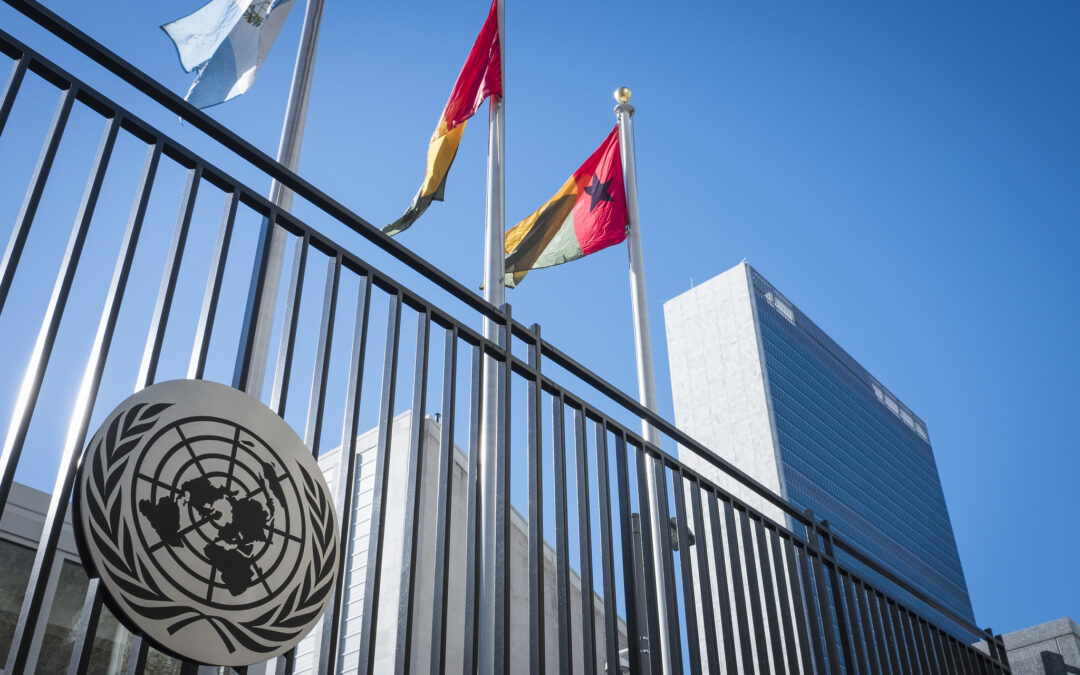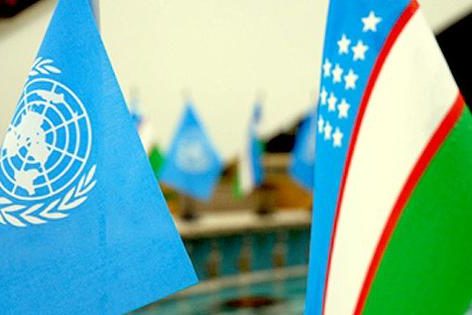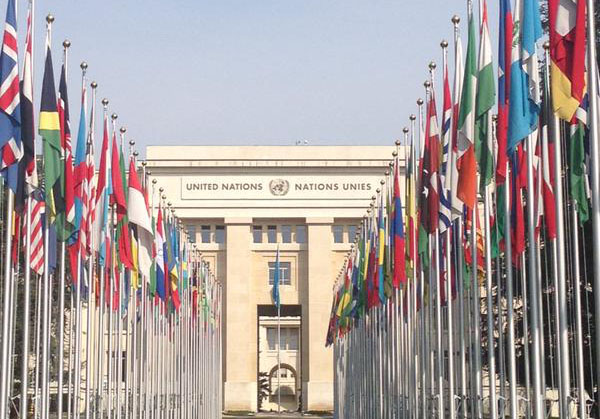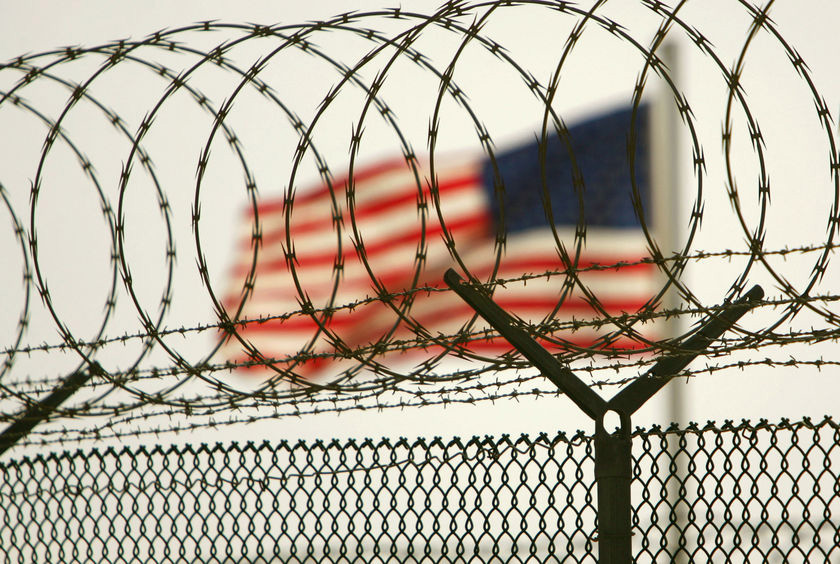
Oct 24, 2019
The ICJ and other NGOs today sent an open letter to all State delegations in New York, urging them to uphold the protection of human rights while countering terrorism, in forthcoming negotiations on resolutions at the UN General Assembly.
The open letter urges all States to restore the focus of relevant General Assembly resolutions on human rights while countering terrorism, including the human rights of victims of terrorism.
In particular, it calls for States to reject efforts by Egypt and others to dilute, distract or distort this focus by introducing the overbroad concept of “effects of terrorism on all human rights” which seems primarily concerned with the impacts of terrorism more generally on macro-economic conditions, government budgets, and foreign industry and investment, as well as duplicating text from elsewhere in the UN system prescribing particular counter-terrorism measures.
While these may be valid topics for the UN to address in other discussions or fora, the ICJ and other NGOs feel strongly that the limited resources and attention within the UN allocated to the specific focus on human rights while countering terrorism, including human rights of victims of terrorism, should not be lessened or weakened by bringing in such other issues which are only remotely, if at all, linked to human rights. Indeed, the ICJ and other NGOs believe the longer term aim of such efforts is in fact to undermine the work of the UN Special Rapporteur on the promotion and protection of human rights and fundamental freedoms while countering terrorism.
The open letter can be download in full in PDF format here: UN-Advocacy-OpenLetter-TerrorismHumanRights-2019
For more background, see here and here.
The ICJ has published a compilation on human rights of victims of terrorism available to download in PDF format here.

Oct 18, 2019
The ICJ, Amnesty International, the International Rehabilitation Council for Torture Victims and the Jacob Blaustein Institute for the Advancement of Human Rights have presented a position paper ahead of the review of the human rights treaty body system.
Thefour NGOs are committed to ensuring the effectiveness of the United Nations human rights treaty bodies as critical institutions charged with strengthening the protection of human rights around the world.
General Assembly resolution 68/268 on Strengthening and enhancing the effective functioning of the human rights treaty body system mandates a review of the “effectiveness of the measures taken in order to ensure their sustainability, and, if appropriate, to decide on further action to strengthen and enhance the effective functioning of the human rights treaty body system” no later than April 2020.
The goal of the four organizations is for the outcome of the 2020 review to support a treaty body system that strengthens the realization of human rights at the domestic level, including by assisting States to give effect to their treaty obligations and by making the system more accessible to rights-holders to exercise and enjoy their human rights.

Oct 14, 2019 | Advocacy, Non-legal submissions
The ICJ has presented information to the UN Committee against Torture in preparation for the Committee’s examination of the fifth periodic report of Uzbekistan under the International Covenant on Civil and Political Rights (ICCPR).
In its submission, the ICJ addresses Uzbekistan’s legislation on extradition, its potential discrepancies with international law.
The ICJ welcomes the recent ratification of the Commonwealth of Independent States (hereafter, “CIS”) Convention on Legal Assistance and Legal Relations in Civil, Family and Criminal Matters 2002, known as the Chisinau Convention, as a positive step towards the compliance of the country’s extradition system with international standards
In it report, the ICJ formulates the following recommendations to Uzbekistan:
- Fully implement human rights and procedural safeguards and guarantees in extradition proceedings or in connection with other types of transfers, and interpret and apply such safeguards in accordance with Uzbekistan’s international human rights law obligations. In particular, Uzbekistan should take all necessary measures to fully implement the human rights guarantees featured in the Chisinau Convention into its domestic legislation.
- Implement the necessary reforms to give judicial authorities the central decision-making role in extradition proceedings, and ensure their full independence both at an institutional and personal level, in law and in practice. Extradition decisions should be taken by prosecutors only if they enjoy the same level of independence as judges, in law and in practice.
- Ensure that individuals extradited to face trial in Uzbekistan courts are awarded the full protection of the Convention.
- Take effective measures to prevent torture and other forms of ill-treatment, including by ensuring compliance with the non-refoulement principle in extradition proceedings.
- Carry out effective, independent and impartial investigations with a view to identifying persons directly and indirectly responsible for rendition operations and abduction practices, as they violate human rights and involve crimes under international law. Those responsible should be prosecuted, tried and, if convicted, sentenced to punishments commensurate with the gravity of their crimes, and to appropriate administrative sanctions to ensure non-repetition.
Uzbekistan-CAT-Advocacy-non legal submission-2019-ENG (download the submission in English)

Oct 12, 2019 | Agendas, Events
Today begins in Izmir (Turkey) a one-day workshop for lawyers and CSO practitioners on the use and strategies of UN mechanisms and of their decisions in domestic courts.
This event is organized by ICJ, in cooperation with its partners Kapasite Geliştirme Derneği and Human Rights Joint Platform, as part a/the EU co-financed project Rebuilding and Ensuring Access to justice with civil society in Turkey.
30 lawyers and civil society practitioners are taking part in the workshop on 12 October in Izmir.
The workshop aims at discussing the functioning of the UN human rights mechiansms (treaty bodies and charter-based bodies) as well as their follow up procedures and the implementation of their decisions in the domestic legal framework in Turkey.
The workshop will provide presentations on the functioning of UN mechanisms by international expert, including from OHCHR, on the value of UN decisions under Turkish law, as well as discussions and brainstorming on how to use UN decisions in Turkey.
The project is funded by the European Instrument for Democracy and Human Rights (EIDHR) of the European Union.
Turkey-Workshop-Agenda-UNmechanisms-Izmir-2019-eng (download the agenda in English)
Turkey-Workshop-Agenda-UNmechanisms-Izmir-2019-tur (download the agenda in Turkish)

Oct 3, 2019 | Advocacy, Non-legal submissions
Today, the ICJ, jointly with the World Organisation against Torture (OMCT) and REDRESS, made a submission to the UN Universal Periodic Review (UPR) of the United States of America.
The joint submission focusses on the United States’ longstanding failure to:
(1) provide effective remedy and redress, including medical care, and
(2) guarantee fair trials to the “High Value Detainees” who are still held in Guantánamo, including Mr. Mustafa al Hawsawi.
Through a system of classifications, isolation, detention and counter-terrorism related policies the United States’ government is preventing a category of victims of torture and other ill-treatment from obtaining redress, fair trials and is securing impunity for perpetrators, contrary to recommendations in the previous UPR cycles.
For 18 years, the United States government has been violating numerous international human rights treaties it has ratified, first and foremost the Convention against Torture and Other Cruel, Inhuman or Degrading Treatment or Punishment and the International Covenant on Civil and Political Rights. Such violations deserve serious attention in the upcoming UPR review.”
USA-UPR Review-Advocacy-non-legal submissions-2019-ENG (submission in PDF)









